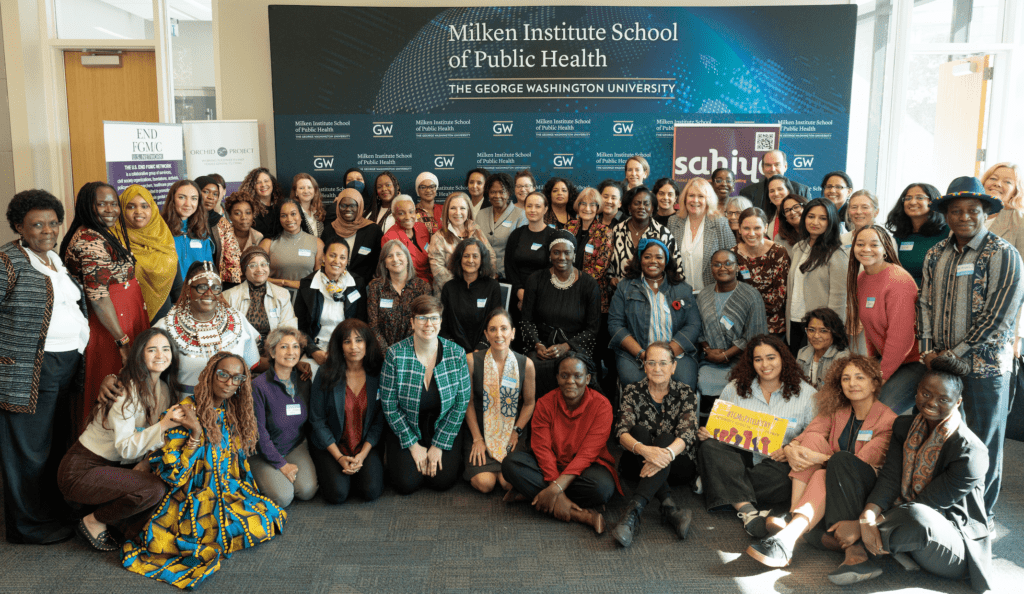Statement by The U.S. End FGM/C Network on the Global Ministerial Conference on Ending Violence Against Children
Posted: December 03. 2024

The first-ever Global Ministerial Conference on Ending Violence Against Children was hosted by the Governments of Colombia and Sweden, in partnership with the World Health Organization, UNICEF and the UN Special Representative of the Secretary General on Violence Against Children, in Bogota, Colombia, from November 7-8, 2024.
The Ministerial Conference sought to drive policy change, mobilize resources, and show that violence prevention is achievable. Ministerial delegations, alongside children, young people, survivors, and civil society allies, came together with a shared and ambitious vision to eradicate all forms of violence against children. The Conference served as a platform to highlight national progress, announce new commitments, and amplify a variety of voices. Participants made pledges focused on priority child protection issues.
World governments came together to commit to preventing violence against children, accelerating efforts to achieve SDG 16.2 and fulfill the 2030 Agenda for Sustainable Development‘s goal of ensuring that every child can live free from violence. However, achieving SDG 16.2 requires us to first address SDG 5.3, which aims to eliminate harmful practices like child, early, and forced marriage, and female genital mutilation/cutting (FGM/C).
According to UNICEF, female genital mutilation is an extreme form of violence against children. FGM/C is recognized internationally as a human rights violation, constituting torture and an extreme form of discrimination against women and girls. In the United States, approximately 513,000 women and girls have undergone or are at risk of FGM/C. It is a federal crime to perform FGM/C in the US or take a girl out of the country for the purpose of undergoing FGM/C, under the STOP FGM Act of 2020. Currently, only 41 states in the U.S. have laws in place against FGM/C, and the level of protection offered by these laws varies across different states.
The United States Government Delegation submitted pledges in 8 of the 14 topic areas, including:
- Parent and caregiver support
- Response and support services
- Addressing online harms
- Governance and coordination structure
- Human, financial and infrastructure resources
- Continuum of services
- Data collection and monitoring
- And others
It is important to note that the United States did not pledge to address harmful norms. According to UNICEF, FGM/C is typically upheld as a harmful social norm.
We call on the U.S. Government to consider FGM/C as a form of violence against children and to apply these pledges to the issue of FGM/C domestically.
Governance and coordination structure
We call for a comprehensive funding strategy that supports local organizations, provides FGM/C prevention education as well as support services for survivors at federal, state, and local levels. This includes funding state, local, and territorial health departments to expand evidence-based prevention and response initiatives with a specific emphasis on disproportionately affected populations; and supporting state, local, and territorial partners to implement effective prevention strategies to prevent FGM/C. In April 2023, Washington State passed Senate Bill 5453, which prohibits FGM/C. A key feature of this legislation is its emphasis on education and awareness, targeting both the general public and professionals on the front lines, such as those in health and education. The bill allocates funding for a prevention and response initiative led by the Washington Department of Health (WA DOH). This initiative, in collaboration with the U.S. End FGM/C Network, Sahiyo, and Mother Africa, offers training and technical assistance, community engagement, and the formation of an advisory committee to help advise on the development of recommendations to the WA DOH on the implementation of the new law. This project is a great example of how state departments of health can effectively prioritize FGM/C prevention and response when appropriate funding is provided.
Human, financial and infrastructure resources
We request support for our state, local, and nongovernment partners in the U.S. to adopt a coordinated approach to eliminate FGM/C. Eliminating FGM/C in the U.S. requires a multisectoral approach that unites survivors, government agencies, law enforcement, child protection professionals, educators, physicians, religious leaders, and advocates.
Data Collection and Monitoring
We also stress the importance of conducting a national FGM/C prevalence survey, as there is an urgent need for updated estimates. Current figures from the Centers for Disease Control and Prevention (CDC), dating back to 2012, only represent FGM/C prevalence among diaspora communities from countries with access to nationally representative survey data. This existing data does not accurately represent the full scale of the issue, as survivor testimonies indicate that FGM/C also occurs in other communities not included in these statistics, including those from several countries in Asia and the Middle East, as well as diaspora and non-immigrantcommunities in the U.S.
According to Equality Now, several countries are significantly ahead of the U.S. in terms of data collection, prevention and training programs, health services for survivors, and public awareness regarding women and girls affected by or at risk of FGM/C, and it’s time for the U.S. to prioritize FGM/C as an urgent issue that impacts communities within our own borders. In line with the above pledges, we urge the United States Government to increase FGM/C prevention and response funding and to update data on FGM/C estimates in each state and nationally.
